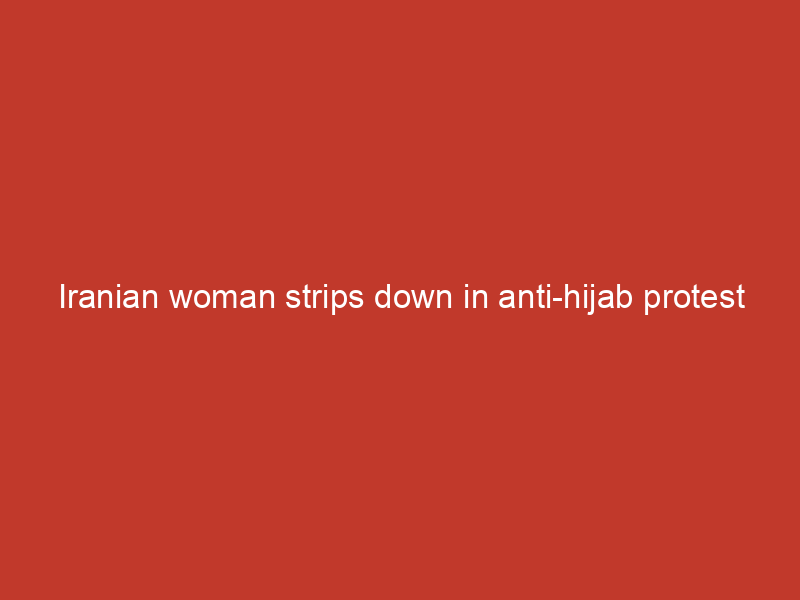Iranian Student Protests Assault by Militia, Strips Down to Underwear
In an act of defiance against the assault she endured, a female Iranian student took a bold stand by stripping down to her underwear on the campus of Tehran’s Islamic Azad University. The assault was reportedly carried out by the Basij, a paramilitary militia affiliated with the Islamic Revolutionary Guard Corps (IRGC). The reason behind the assault was the student’s alleged improper wearing of the mandatory hijab, as the Basij enforces strict dress codes. It is worth noting that the Basij is designated as a terrorist organization by the United States.
The video of this incident quickly went viral on social media, drawing attention to the student’s brave act of protest. While the student’s name has not been independently confirmed, media outlets in France and Germany have identified her as Ahoo Daryaei.
Campus Security Arrests Student
According to Amir Mahjoub, the director general of public relations at the university, the student was arrested following the incident. Mahjoub stated, “Following an indecent act by a student at the Science and Research Branch of the university, campus security intervened and handed the individual over to law enforcement authorities.” The motives behind the student’s actions are currently under investigation.
International Response and Alleged Assault
The incident has garnered international attention, with the United Nations’ special rapporteur for Iran, Mai Soto, closely monitoring the situation. Soto posted a video of the student on social media and pledged to monitor the authorities’ response.
Reports from Iran International and the Telegram student group Amir Kabir Newsletter suggest that the student was severely assaulted by the Islamic Republic’s security forces. It is alleged that she was violently beaten, resulting in blood stains on a nearby car. These reports highlight the brutality faced by those who challenge the regime’s oppressive policies.
A Powerful Symbol of Resistance
The student’s protest, though shocking to outsiders, reflects the harsh realities faced by Iranians under the Islamic Republic’s rule. Iranian American lawyer Elika Eftekhari compares the student’s act of defiance to Jan Palach’s self-immolation in the formerly communist Czech Republic. It speaks to the pervasive sense of hopelessness and despair among Iranians who feel trapped in a negative cycle. However, Eftekhari also acknowledges the strength and courage displayed by the student in challenging the regime’s misogynistic policies.
The Role of Iranian Women in Anti-Regime Protests
The student’s protest is part of a larger movement of Iranian women defying the mandatory hijab laws and challenging the oppressive rule of the Islamic Republic. Lisa Daftari, an expert on Iran, notes that women in Iran have been at the forefront of anti-regime opposition for years. The murder of Mahsa Amini two years ago sparked widespread protests against the regime’s treatment of women, particularly regarding the hijab and dress codes.
Calls for International Support
Eftekhari emphasizes the importance of international recognition and support for the student’s protest. She urges governments and organizations to comment, tweet, and issue statements in solidarity with the student. It is crucial to view her actions within the context of Iranians’ readiness for regime change rather than mere reform.
Continued Struggle for Women’s Rights in Iran
While Iran’s new President, Masoud Pezeshkian, promised to end morality police patrols that enforce hijab rules during his recent campaign, critics view this pledge as empty rhetoric. Just last month, Iran’s Guardian Council passed the controversial hijab and chastity bill, which imposes fines on those who violate the dress code. Iran’s parliament is currently reviewing the bill. Ultimately, all laws and legislation in Iran are controlled by Supreme Leader Ali Khamenei, making the president’s role largely symbolic.



